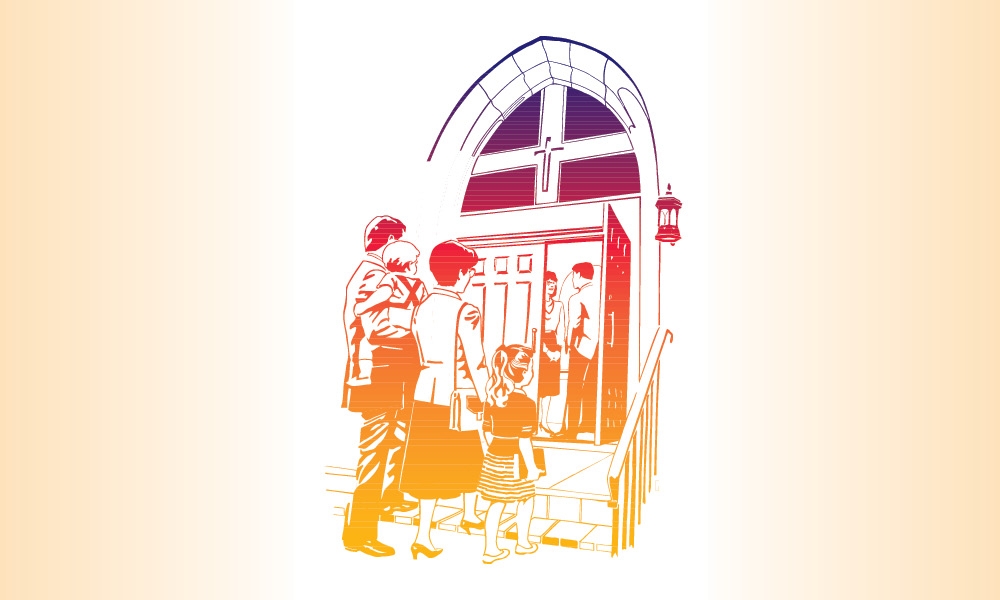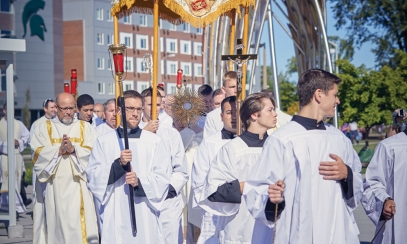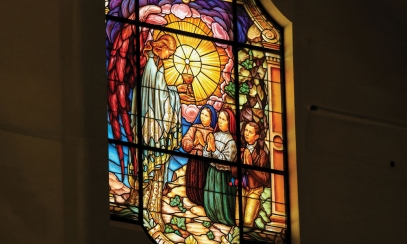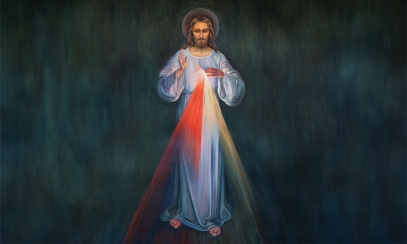
The rhythm of life: Holy days of obligation in schools
Getting your Trinity Audio player ready...Friends, the name of this monthly article is "Living Liturgically,” because living a liturgical life is synonymous with living a Catholic life. The two go hand in hand. Ever since the Eternal became one of us and entered into time, time has taken on a new character, we experience God’s love through time and that is precisely what the rhythms of the liturgical year and the Catholic faith are all about — experiencing the overwhelming love of God. To live a fully Christian life, the liturgical year needs to become the rhythm of our own lives, so we make use of these pages to encourage you and your families to live a more robust Catholic life.
Friends, the name of this monthly article is "Living Liturgically,” because living a liturgical life is synonymous with living a Catholic life. The two go hand in hand. Ever since the Eternal became one of us and entered into time, time has taken on a new character, we experience God’s love through time and that is precisely what the rhythms of the liturgical year and the Catholic faith are all about — experiencing the overwhelming love of God. To live a fully Christian life, the liturgical year needs to become the rhythm of our own lives, so we make use of these pages to encourage you and your families to live a more robust Catholic life.
However, seeing as this issue of FAITH is dedicated to Catholic schools this month, I thought I would make an exception and address these reflections to our Catholic schools. It is in our Catholic schools where we not only are taught the truths of our faith, but we also learn the ethos of the Catholic faith, and, so, liturgical living in a Catholic school is of utmost importance.
The liturgical year is highlighted of course, by the principal feasts of Christmas, Pentecost, and Easter. These days emphasize the Christian doctrines of the Incarnation, the Church, and, most importantly, the Resurrection of the Lord. In addition to these three, we have every Sunday of the year and the holy days of obligation. Rightfully, these are the days we set aside to worship God and offer him the praise and thanksgiving due him. This is what the Catechism of the Catholic Church has to say.
“The first precept (‘You shall attend Mass on Sundays and on holy days of obligation and rest from servile labor’) requires the faithful to sanctify the day commemorating the Resurrection of the Lord as well as the principle liturgical feasts honoring the mysteries of the Lord, the Blessed Virgin Mary, and the saints; in the first place, by participating in the Eucharistic celebration, in which the Christian community is gathered, and by resting from those works and activities which could impede such a sanctification of these days.” (2042)
This requirement to attend Mass and rest, even in this increasingly secular culture, is why many people do not go to their jobs on Sunday, and we do not hold school on Sunday. We know, as well, that the Sunday obligation is not given because God needs our worship. Jesus explains, “The sabbath was made for man, not man for the sabbath.” (Mk 2:27) We need to worship and rest. It is vital to our existence.
However, when we read closely the teaching of the Catechism, or other Church documents, we discover that the Church treats holy days of obligation the same way as she does Sunday: with obligations to worship and to rest. If this is true, and the quote above demonstrates that it is, I would like to encourage all our Catholic institutions, as much as it is possible, to consider how we are living the obligation of the faith and handing on the ethos of the faith in our approach to the holy days of obligation. Here, at the offices of the Diocese of Lansing, we take the day off for every holy day of obligation. I’d love to see that practice spread.
Schools traditionally recess for holidays. We have Labor Day, Memorial Day, MLK Day, Presidents’ Day, and Thanksgiving, all secular holidays off from school attendance. May I suggest, that, as Catholic schools, shouldn’t we also recess for holy days of obligation so that children and their families can fulfill their duty to worship God and rest as a family? Currently, in the American Church there are only two which we are not generally acknowledging in our school calendars, All Saints (Nov. 1st) and the Immaculate Conception (Dec. 8th).
I could anticipate a rebuttal being that by holding classes on these days we can ensure children attend a holy day Mass. But I would point out that it is my responsibility as a parent to make sure my children attend Mass on a holy day; to gather them and lead them in worship. That isn’t a responsibility that schools inherently have.
One possible model schools could consider adopting is currently in place at Resurrection School in Lansing. Resurrection holds a half-day of school on holy days of obligation. During that morning session, they begin with the celebration of Mass in which families are invited to participate so that they might attend holy day Mass together as a family, and then the children spend the rest of the morning holding a festival to mark the day. This arrangement still achieves the goal of educating the importance of observing the feast as well as giving the students an authentic experience of Catholic culture. I personally would love to see this model adopted across the diocese.
We Catholics are a people with a culture! We must celebrate that culture through the observance of our feasts (and our fasts), and we must hand on that culture to the next generation. It helps us embrace our identity as Catholics and devote our lives to God. God bless and happy Catholic Schools Week!
Richard Budd is the Director of Marriage and Family Life Ministry for the Diocese of Lansing.



